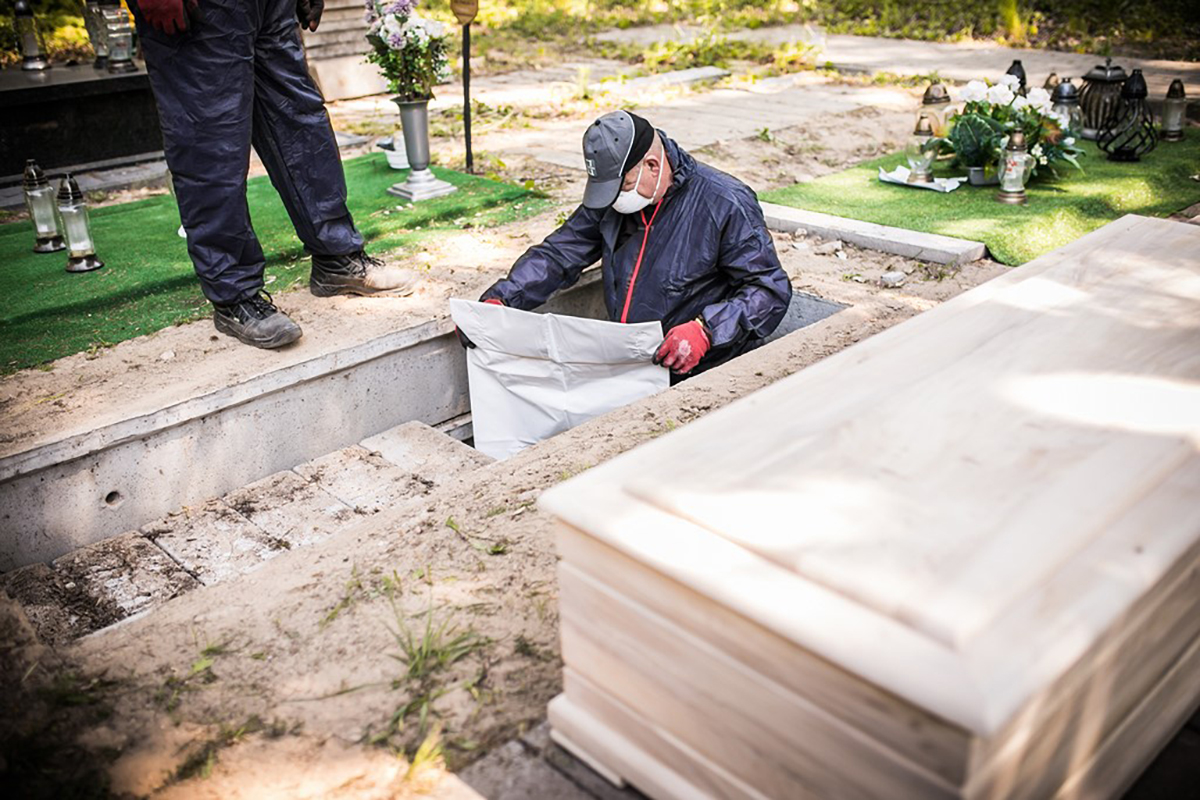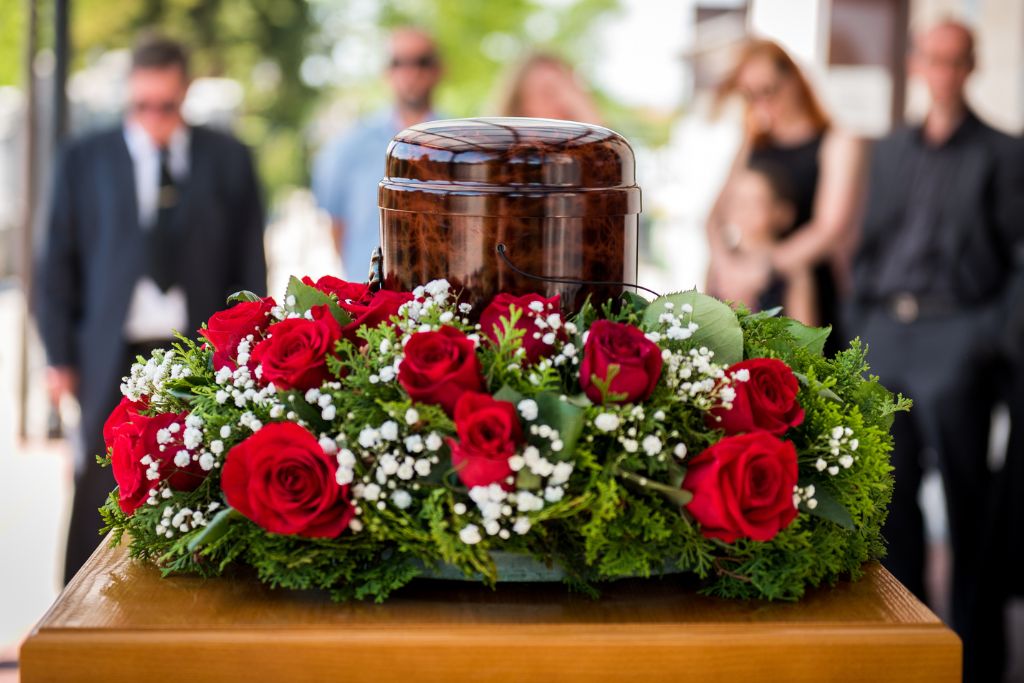L’exhumation consiste à retirer un corps ou des restes humains d’une tombe. Elle est le plus souvent réalisée dans un but précis lié à des examens médico-légaux ou pour transférer et réinhumer les restes en un autre lieu.
L’exhumation consiste à retirer un corps ou des restes humains d’une tombe. Elle est le plus souvent réalisée dans un but précis lié à des examens médico-légaux ou pour transférer et réinhumer les restes en un autre lieu.

Les réglementations encadrant cette procédure sont définies par la loi du 31 janvier 1959 sur les cimetières et l’inhumation des défunts, ainsi que par les règlements ultérieurs.
Il est important de savoir que l’exhumation est autorisée du 16 octobre au 15 avril et qu’elle est effectuée tôt le matin. De plus, l’exhumation ne peut être réalisée que par une entreprise funéraire spécialisée, disposant d’une autorisation délivrée par l’inspecteur sanitaire d’État du district, sous la supervision de l’inspecteur sanitaire local et en accord avec l’administration du cimetière.
L’exhumation est le plus souvent réalisée à la demande de la famille proche du défunt afin de transférer les restes dans un autre lieu de repos.
Elle peut également être effectuée en raison de la rénovation d’une sépulture, du changement d’affectation du terrain du cimetière actuel, ou à la demande d’un tribunal, du parquet ou de l’Institut de la Mémoire Nationale.
Une exhumation demandée par la famille doit être approuvée par tous ses membres. En cas de litige (par exemple concernant les droits à la tombe), la décision revient au tribunal.
L’exhumation est possible à tout moment après l’inhumation, à condition que les exigences formelles soient remplies.
Une restriction s’applique aux personnes décédées de maladies infectieuses — dans ces cas, l’exhumation n’est possible qu’après l’écoulement d’un délai de 2 ans.
Une demande d’autorisation d’exhumation peut être déposée par une personne ayant le droit d’inhumer le défunt — le plus souvent un membre proche de la famille. La demande est soumise à l’inspecteur sanitaire d’État du district ou à l’inspecteur sanitaire d’État des frontières compétent pour le lieu de l’exhumation prévue. Elle doit être déposée en personne, par courrier ou via le système ePUAP.
Si la demande n’est pas signée par toutes les personnes habilitées, les déclarations écrites de consentement à l’exhumation de ces personnes doivent être jointes.
Toute exhumation, en particulier celle réalisée avant la fin du processus de minéralisation du corps, comporte un risque d’infection par des micro-organismes. Elle ne peut donc être effectuée que dans des conditions sanitaires appropriées.
Les employés de l’entreprise spécialisée qui réalise l’exhumation doivent utiliser des équipements de protection individuelle, et la terre retirée de la tombe doit être placée sur une surface protégée par une bâche imperméable et résistante.
Si le corps ou les restes sont exhumés avant que 20 ans ne se soient écoulés depuis l’inhumation, ils sont retirés avec le cercueil — ces cercueils ne sont pas ouverts mais placés dans un caisson doublé de métal et hermétiquement fermé.
Après 20 ans, les restes exhumés, accompagnés de fragments du cercueil, sont placés dans un nouveau cercueil.
L’exhumation réalisée par les employés qualifiés et correctement préparés de BONGO International Funeral Servicesest toujours effectuée dans le strict respect des réglementations sanitaires et avec le plus grand respect pour la dignité du défunt.
Il est difficile de déterminer clairement les coûts d’une exhumation, car le prix dépend de plusieurs facteurs, tels que :
Vous trouverez davantage d’informations sur les exhumations réalisées par BONGO sur notre site :
https://bongo.com.pl/oferta/ekshumacje/
Nous réalisons des exhumations pour les familles et les institutions publiques du monde entier.
Nous vous invitons à contacter nos conseillers par téléphone au +48 22 831 00 36 ou par e-mail à biuro@bongo.com.pl.
Transport selon les pays
Experte indépendante dans le secteur funéraire, auteure du blog Celebruj Wspomnienia (« Célébrez les Souvenirs ») et rédactrice en chef du magazine THANOS — la publication officielle éditée par l’Organisation Mondiale des Opérateurs Funéraires FIAT-IFTA. Elle a rédigé près d’une centaine d’articles et réalisé des dizaines d’entretiens sur des sujets liés aux tendances, au marketing et à la vente de services funéraires. Katarzyna suit en permanence l’évolution du secteur, découvrant les innovations qui transforment la manière dont les services funéraires sont perçus. Son approche unique — alliant perspicacité, courage et respect — attire l’attention aussi bien des professionnels que du grand public. Elle collabore avec les leaders du marché, dont Grupa KLEPSYDRA S.A.

Le rapatriement d’une personne décédée vers la Pologne est un processus qui devient pour de nombreuses familles une nécessité lorsqu’un proche décède soudainement à l’étranger. Bien que cette procédure puisse sembler complexe, sa durée dépend de plusieurs facteurs essentiels : le déroulement des formalités administratives, les exigences légales du pays concerné ainsi que la logistique du transport lui-même. Il est important de comprendre comment se déroule l’ensemble du processus.

La perte d’un être cher est une expérience qui survient toujours trop tôt et exige que de nombreuses formalités soient accomplies dans un laps de temps très court. Ce guide a été créé afin de vous aider à traverser ce processus étape par étape — depuis les documents et les décisions organisationnelles jusqu’à la logistique de la cérémonie. Grâce à ces informations, la préparation des funérailles peut se dérouler plus sereinement, avec l’assurance que chaque détail a été traité avec respect et soin.

De plus en plus de familles, guidées par les souhaits du Défunt ou par leurs propres convictions, choisissent un dernier adieu sans symbolique religieuse. Cette forme de cérémonie permet de se concentrer sur l’histoire de vie, les valeurs et les relations qui ont façonné le quotidien de l’être cher.